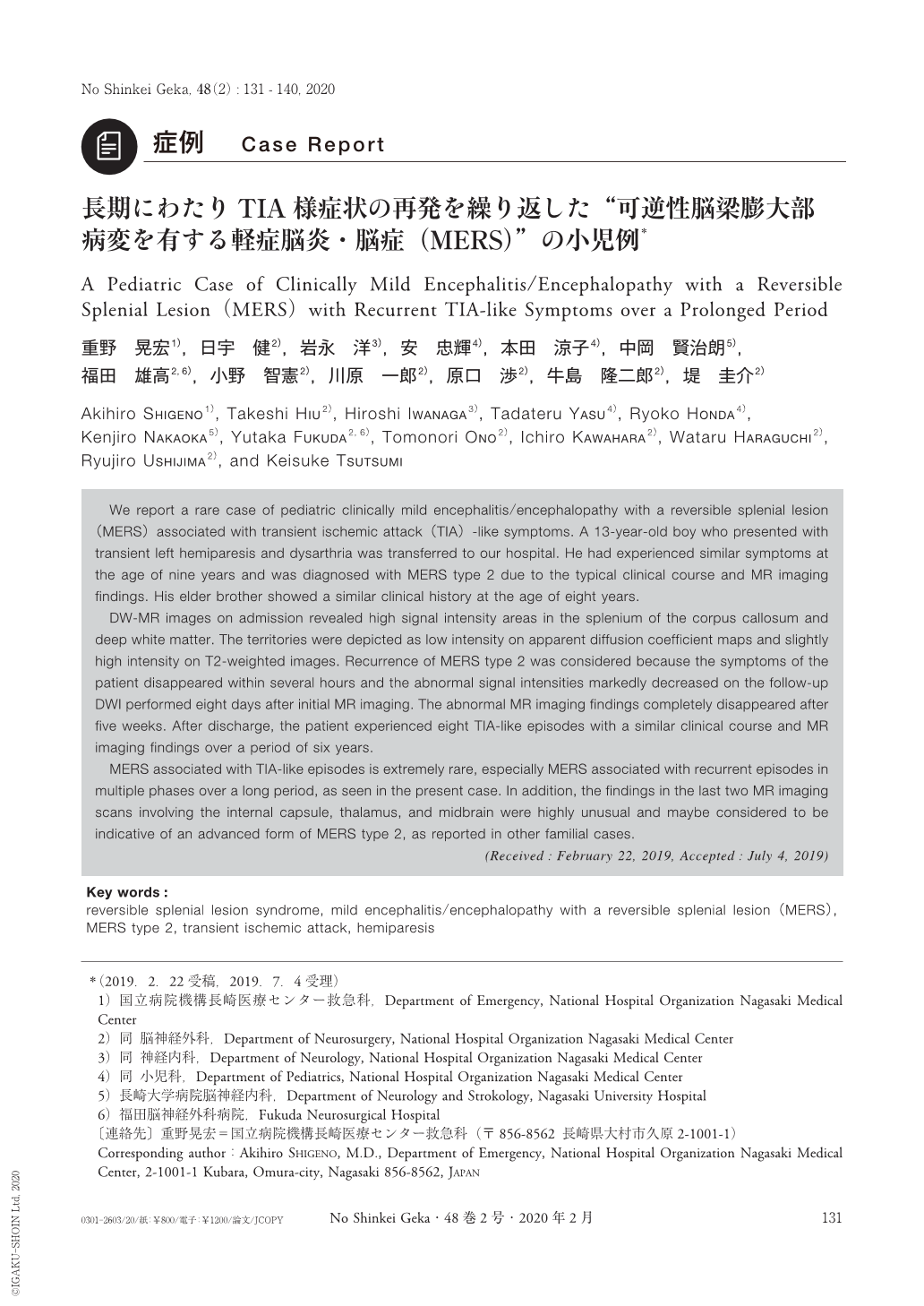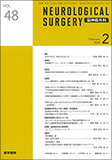Japanese
English
- 有料閲覧
- Abstract 文献概要
- 1ページ目 Look Inside
- 参考文献 Reference
Ⅰ.はじめに
軽症脳炎・脳症に伴って,DWIで高信号を示す可逆性脳梁膨大部病変(clinically mild encephalitis/encephalopathy with a reversible splenial lesion:MERS)が報告されてきた16).脳梁のみに画像所見があるMERS type 1と対称性白質病変が加わるtype 2があり,同一のスペクトラムと考えられている17,20).発熱後1週以内に異常言動・意識障害・痙攣などで発症するのが一般的であり,脳卒中様症状での初発4,5)や再発例6,12)の報告は非常に少ない.通常10日以内に画像所見も含めて後遺症なく回復し,予後は良好である.
今回われわれは,transient ischemic attack(TIA)様の症状で発症し,6年以上にわたり多数回の再発を繰り返す極めて稀なMERS type 2の小児例を経験した.過去に報告のない特異な臨床経過であり,本症例の病態や日常診療における意義について,考察を加えて報告する.
We report a rare case of pediatric clinically mild encephalitis/encephalopathy with a reversible splenial lesion(MERS)associated with transient ischemic attack(TIA)-like symptoms. A 13-year-old boy who presented with transient left hemiparesis and dysarthria was transferred to our hospital. He had experienced similar symptoms at the age of nine years and was diagnosed with MERS type 2 due to the typical clinical course and MR imaging findings. His elder brother showed a similar clinical history at the age of eight years.
DW-MR images on admission revealed high signal intensity areas in the splenium of the corpus callosum and deep white matter. The territories were depicted as low intensity on apparent diffusion coefficient maps and slightly high intensity on T2-weighted images. Recurrence of MERS type 2 was considered because the symptoms of the patient disappeared within several hours and the abnormal signal intensities markedly decreased on the follow-up DWI performed eight days after initial MR imaging. The abnormal MR imaging findings completely disappeared after five weeks. After discharge, the patient experienced eight TIA-like episodes with a similar clinical course and MR imaging findings over a period of six years.
MERS associated with TIA-like episodes is extremely rare, especially MERS associated with recurrent episodes in multiple phases over a long period, as seen in the present case. In addition, the findings in the last two MR imaging scans involving the internal capsule, thalamus, and midbrain were highly unusual and maybe considered to be indicative of an advanced form of MERS type 2, as reported in other familial cases.

Copyright © 2020, Igaku-Shoin Ltd. All rights reserved.


